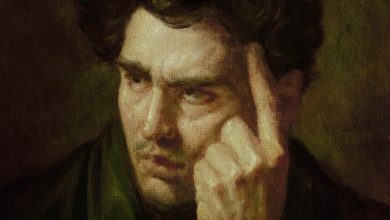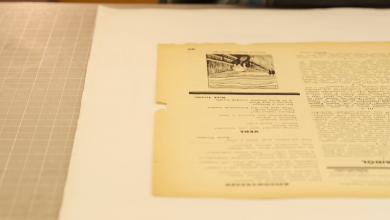After ‘A Little Life,’ Hanya Yanagihara’s Big New Novel Rewrites History

TO PARADISE
By Hanya Yanagihara
Can an Asian American woman write a great American novel? Ought a great American novel range from New York to Hawaii, skipping the Midwest? Can it cross from realism to dystopia? And — most important of all, perhaps — can it center on gay men?
It is to Hanya Yanagihara’s considerable credit that her new novel raises these questions. At more than 700 pages, with a span of 200 years, “To Paradise” begins in New York in 1893. We are given a patriarch, wealth, children; there is an arranged marriage, an inheritance, a true love, a class divide and a significant twist. Deftly paced and judiciously detailed, the tale makes hay with the conventions of the 19th-century novel. But that’s not all. With breathtaking audacity Yanagihara rewrites America, the Civil War having produced, in this account, not a united country but a conglomeration of territories, including one called the Free States. In this nation-within-the-nation, gay marriage is allowed — although, lending nuance to the picture, arranged marriages are, too.
Yanagihara goes on to rewrite history in other centuries as well, even as she moves the action from New York to Hawaii and back again, negotiates three major and nine minor time shifts and, most strikingly, ushers her characters offstage only to bring them back, in other eras and other guises, multiple times. To give just one of myriad examples, David Bingham, the heir of a mansion in Part I, returns a century later as a paralegal, passionately in love with one Charles Griffith. (We’ve met Charles before too, as the older, stolid suitor who was spurned by the David Bingham of Part I. Now he’s an even older yet dashing and worldly partner in David’s firm; David, moreover, formerly fair-complexioned, is now mixed-race.)
There are dozens of other such reincarnations, and they simultaneously bedazzle and befuddle. If in a Russian novel one struggles to keep track of who is related to whom, here we struggle to keep track of who has turned into whom, especially as Yanagihara masterfully repurposes themes, situations and motifs as well. It isn’t only arranged marriages and class differences that recur. Pandemics, mansions, triangles, illnesses, abandonments, deaths, letters and inheritances also kaleidoscopically reappear, as do grandfathers, lovers, invalids, caretakers, utopians and more.
Each section of the book is helpfully anchored by its own drama. A mansion is bequeathed; a man helps host a farewell dinner for his lover’s dying former lover; a man and his family grapple with his unconscionable professional choices. There is purpose behind the repurposing. At one point one of the Davids wonders, what if things were different — what then? “Would they still know each other? Would they still have fallen in love? Would David still have need for Charles? … Would David still find something to love in him?”
And indeed we see, over the course of the book, that as the characters morph, so do their relationships. At one point one of the Charleses — voicing, it seems, Yanagihara’s preoccupation with “the truth of who we are, our essential selves, the thing that emerges when everything else has been burned away” — writes that the pandemic he is enduring “clarified everything about who we are; it revealed the fictions we’d all constructed about our lives.” Furthermore: “It revealed how brittle the poetry of our lives truly is — it exposed friendship as something flimsy and conditional; partnership as contextual and circumstantial. No law, no arrangement, no amount of love was stronger than our own need to survive.”
Suggestively, this Charles relates a story his Hawaiian grandmother once told him, about a hungry lizard who, having eaten everything on earth, finally eats the moon and explodes. The earth recovers, as does the moon; and the lizard comes back as a man who in time also ill-advisedly eats the moon. But the moral is not what we might expect. Rather, it is that “we are the lizard, but we are also the moon. Some of us will die, but others of us will keep doing what we always have, continuing on our own oblivious way, doing what our nature compels us to, silent and unknowable and unstoppable in our rhythms.”
Limited and circumstantial as they may ultimately be, acts of love and goodness do leaven this book, which is finally as much concerned with the vulnerable as the inescapable. What wonder, though, that history is on repeat, social progress ephemeral and freedom a flickering hope.
In its evocation of eternal recurrence and the illusory nature of life, “To Paradise” recalls Buddhist ideas and so large a wisdom that it may seem absurdly worldly to critique the novel as a piece of craft. But 700-page books will sag in places, and this one is no exception. It loses steam in the Hawaii section and only fitfully regains momentum until its gripping end.
As in her second novel, “A Little Life,” Yanagihara evinces a preoccupation with the horrific, and the dystopian future depicted in the final section is horrific indeed. But reading of the societal developments, we may yearn for the fineness of touch with which the novel opened. In place of Yanagihara’s trademark emotional probing, the last section confronts us with chunks of exposition, not only in the letters of a troubled, brilliant scientist but also in the recollections of his mentally compromised granddaughter. She writes, for example, that his labs “sometimes worked with various ministries, especially the Health and Interior Ministries, but the state had no jurisdiction over any of their work. After ’56, though, that changed, and in ’62, when the state was established, it was given oversight of all the country’s research facilities. The following year, the 45 states were divided into 11 prefectures, and in ’72, the year after the zones were established, the state was one of 92 countries that signed a treaty with Beijing.”
In contrast, earlier in the book, one of the Charleses recalls seeing his mother with his doomed brother: “In her left arm, she was cradling the baby. But in her right hand she was holding an odd instrument, a clear glass dome, and she would fit the dome over the baby’s mouth and nose and then squeeze the rubber bulb attached to it. … Every 10 squeezes or so she would stop for a second, and I could hear, barely, the baby’s breath, so quiet. …
“It didn’t work, of course. … But lately, I’ve been thinking about … who will hold that little air pump for me when it’s my turn. Not because they think it’ll revive me, or save me. But because they want to try. …
“They were silent for a long time, and although David was thinking many things, he mostly thought about how good this moment was, lying next to Charles in a warm room, with snow outside. He thought that he should tell Charles that he would hold the air pump for him, but he couldn’t.”
This ambitious novel tackles major American questions and answers them in an original, engrossing way. It has a major feel. But it is finally in such minor moments that Yanagihara shows greatness.




